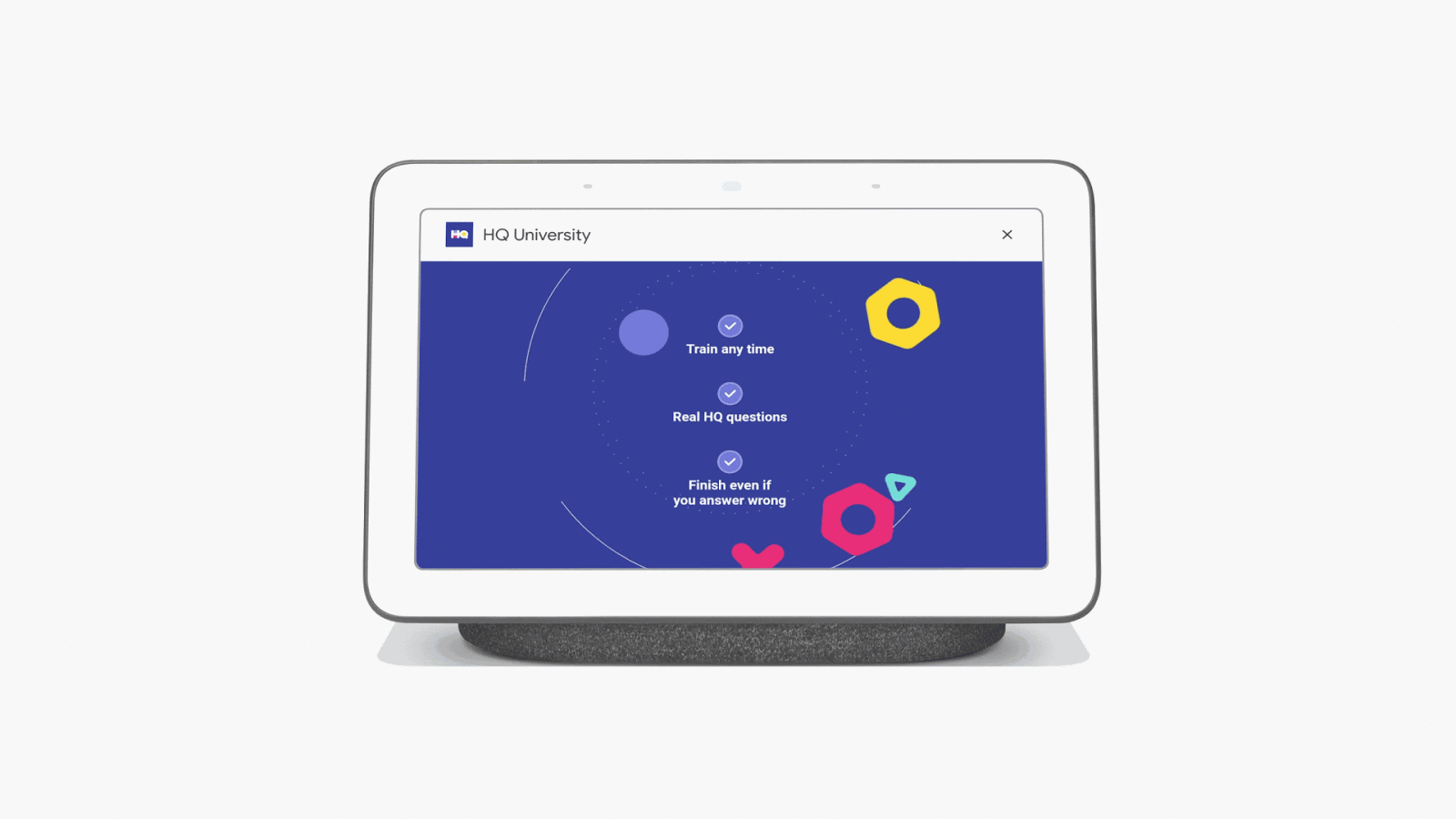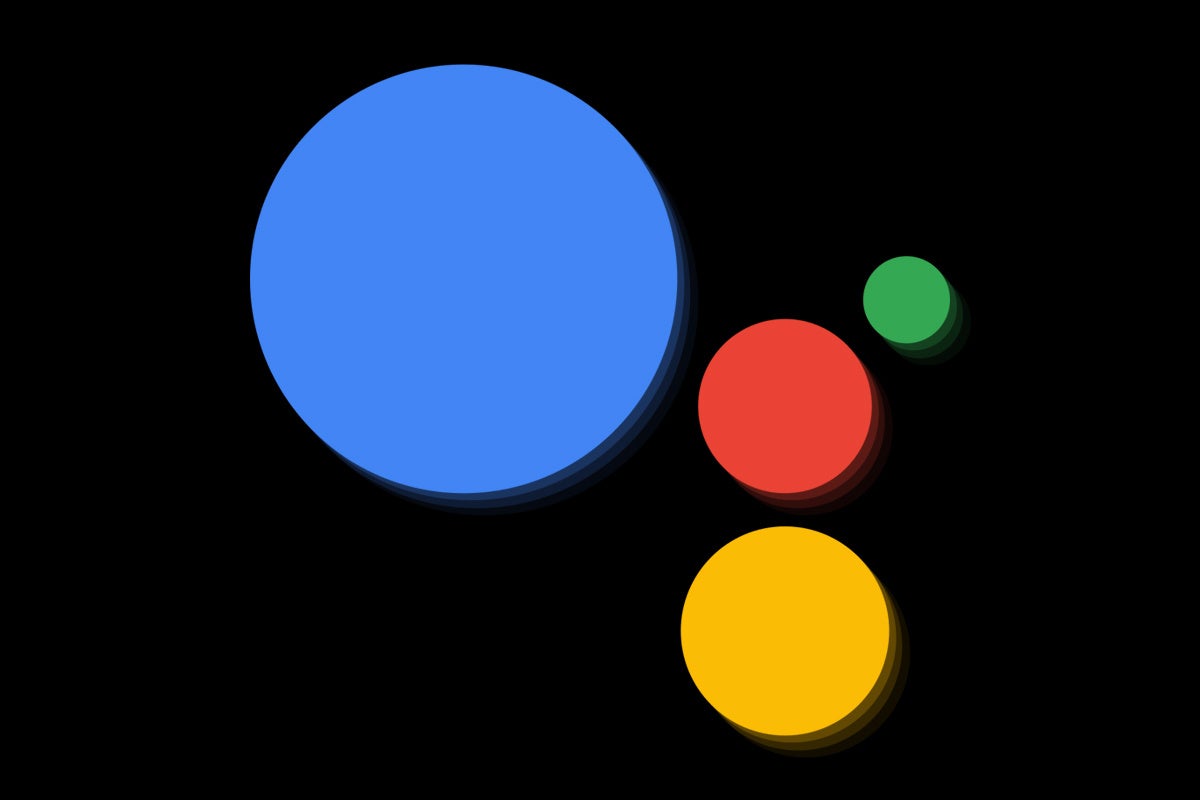Google Assistant is the backbone of almost everything Google does these days — and for good reason. We've talked plenty about how we're in the "post-OS era" and how the common thread throughout most Google products is increasingly Assistant and getting you invested in that next-generation search interface.
So far, though, Assistant has remained mostly that — an interface. A prompt we use to get information and perform tasks. A layer that exists within other Google products. A function, in other words — not its own standalone entity.
From the looks of it, that's all about to change. Join me for a bit of beyond-the-surface contemplation, won't ya?
Assistant's fancy new Canvas
Lost amidst the more headline-generating announcements of Google's giant I/O conference earlier this month was an innocuous-seeming tidbit mentioned at a random developer session: Google's launching a new way for developers to offer more interactive content on Assistant-centric devices.
It's part of an effort called Interactive Canvas — currently available as a "developer preview" and limited to "gaming experiences," to start, but with more categories expected to be added into the mix "soon."
As Google's official developer documentation site explains it:
Interactive Canvas is a framework built on the Google Assistant that allows developers to add a visual, immersive experience to conversational Actions. This visual layer is an interactive web app that is sent as a response to the user in conversation. Unlike traditional rich responses that exist in-line in the Assistant conversation, the Interactive Canvas web app renders as a full-screen web view.
Zzz...oh, hi there! All right, so not the most illuminating or excitement-generating description — but let's break it down, because beneath all the mumbo-jumbo, there's some incredibly important stuff going on here: Interactive Canvas connects a "conversational Action" (a fancy way of saying a voice command) to an "interactive web app." That means when you say something to your device, instead of just getting a basic response back, you can opt to interact with a "visual user interface." Hmm. A visual user interface, you say?
As Google explains it elsewhere, the setup is designed to allow developers to "create full-screen experiences that combine the power of voice, visuals, and touch."
 Google
Google
An early example of a simple app built with the Interactive Canvas framework.
Well, tickle me tooties and call me Dolores. That sure sounds an awful lot like an app to me.
Assistant + apps = ?
See what we're getting at here? Google is effectively turning Assistant into its own standalone platform — not just a void-like interface for answers but a home for its own collection of honest-to-goodness apps. And those apps will run directly on Assistant-centric Smart Displays.
If we read between the lines, that ultimately means Google is redefining its Smart Displays and giving them new life as Bizarro World Android tablets, with their own separate app library that has nothing to do with Google Play. The same apps available in that library will also be available on Android, according to Google — which suggests there's a decent chance they'll make their way to Chromebooks eventually as well.
Oh, and the apps don't use any special programming languages, either: According to Google, they rely solely on "open web technologies" like HTML, CSS, and Javascript, so there's no learning curve required and only minimal effort involved for developers to get on board.
If I may quote the great American philosopher Keanu Reeves for a moment: Whoa.
Stop and think about the significance of this: All those simple-seeming Smart Displays are poised to become far more functional stationary tablets — but instead of tapping into the standard collection of Android apps in Google Play, they'll use a new type of app that can run on all sorts of devices with the common denominator of Assistant at their core. So what type of tablets are these Smart Displays about to become? How do we categorize them? What operating system are they running? Does it even matter? (Google clearly doesn't seem to think so.)
When I first wrote about the notion of the "post-OS era," I made the following observation:
Google's central goal is all about Assistant. And the once-critical operating system is now just one of many satellites surrounding it.
This latest twist with Interactive Canvas represents a monumental step in that post-OS mindset. For months now, folks have been obsessively scrutinizing Google's under-development Fuchsia operating system and wondering if it's the future of the company's software setup. (As I've said from the get-go, that type of thinking seems far too black and white to be sensible — an interpretation Google itself corroborated during a Q&A session at this month's I/O event.) The reality, it appears, is something far less sensational.
Assistant is the Google platform of the future. Whether we're talking about Smart Displays, the Home Hub, or Android devices, the operating system is but a pawn in Assistant's larger-scale and higher-stakes game.
Now, let's be clear: None of this means entities like Android and Chrome OS will cease to exist. It does, however, mean Assistant is only likely to grow ever more important in its role as a nucleus and connective tissue across all those projects. (See also: the way Google is simultaneously encouraging developers to integrate Assistant into their Android apps and allow the apps to function entirely within Assistant, without ever needing to be "opened" in a traditional sense.)
The best way to sum it up is the way I presented it previously: It's the virtual assistant's world now. The operating system is just living in it.
And just think: Everything we're seeing now is only the groundwork of this burgeoning new reality.
Sign up for my weekly newsletter to get more practical tips, personal recommendations, and plain-English perspective on the news that matters.

[Android Intelligence videos at Computerworld]






